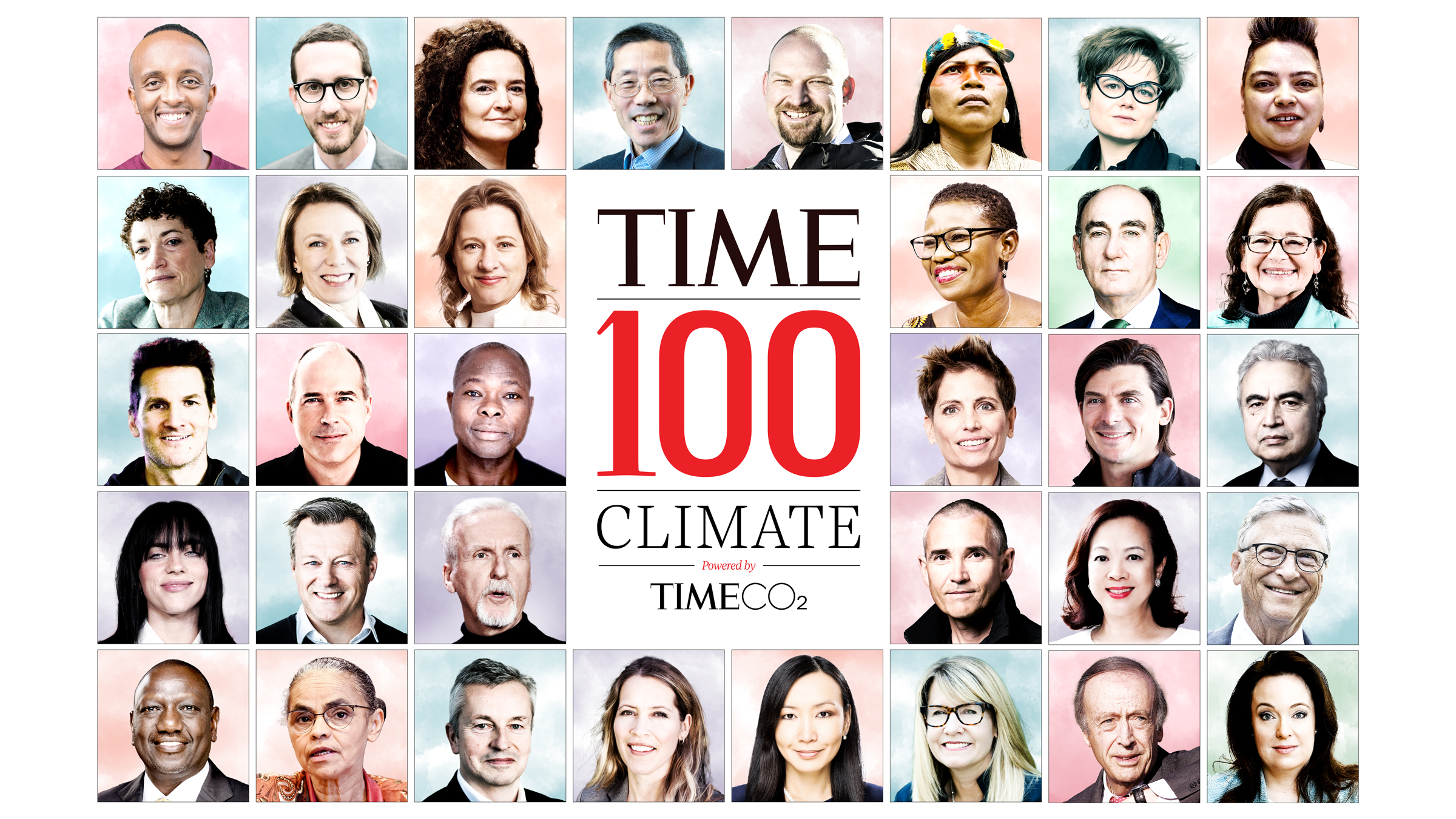In January of 1938, TIME’s editors considered how the sun might become a future energy source. A year later, TIME observed that scientists were seeing evidence of a warming planet. In 1953, TIME cautioned that an “invisible blanket” of greenhouse gases, at its present rate of increase, would “raise the earth’s average temperature 1.5° Fahrenheit every 100 years.” The term climate change, as we currently understand it, was first used by TIME when the editors named the “Endangered Planet” the Person of the Year for 1988. That project included a 33-page special issue, a historic cover created by the artist Christo, and a conference that drew experts from across the world, including the Soviet Union.
[time-brightcove not-tgx=”true”]
Much great work engaging with the climate story has been created by TIME journalists in the years since, and this year is no exception. In 2023, with the support of our colleagues at TIMECO2, we’ve launched a variety of new programs aimed at elevating solutions that will lead to climate action. This past spring, we started the TIMECO2 Earth Awards, at which more than 150 of the world’s most influential leaders on sustainability gathered together. We also created the TIMECO2 Leadership Brief newsletter, which now reaches hundreds of thousands of engaged readers each week. This June, we announced the TIMECO2 Advisory Council and began the TIMECO2 Futures series, a solutions journalism platform intended to inspire and empower businesses to act.
It’s fair to say climate leadership is embedded across all of our coverage today. But we believe more could be done to draw attention to the people who are shaping and leading climate action. That is why we’ve created the inaugural TIME100 Climate list. We are forming this community at a critical moment, ahead of the 2023 U.N. Climate Change Conference. In recent years, this annual meeting has become the most important period of the climate calendar, and we look forward to gathering with the TIME100 Climate leaders at this year’s conference.
The TIME100 Climate is not only a community, it is an argument for how we see the future: we are recognizing those who are connecting climate action and business value, because we believe progress for the planet will come from the engagement with and leadership by the business world. To assemble this list, we tried to capture the latest economic and scientific thinking by selecting individuals who are leading change across five critical areas: energy, nature, finance, culture, and health. Our reporters, editors, and colleagues at TIMECO2 sought out measurable, scalable achievements and prioritized recent action, selecting individuals making significant progress in fighting climate change by creating business value.
The list includes the likes of Jennifer Holmgren, the scientist and entrepreneur leading LanzaTech’s development of synthetic liquid fuels to replace fossil fuels; fashion designer Stella McCartney, whose work with LVMH is scaling more sustainable materials in fashion, an industry that creates more carbon pollution than international flights and maritime shipping; Shemara Wikramanayake, CEO of one of the world’s largest asset-management groups, Macquarie, who is moving $63 million of coal projects off the firm’s balance sheet; and Bhavish Aggarwal, who leads Ola Electric’s development of low-cost electric scooters in India.
Our hope is that decades from now, the creation of the TIME100 Climate will be seen as another watershed moment for TIME and our coverage of the planet.

